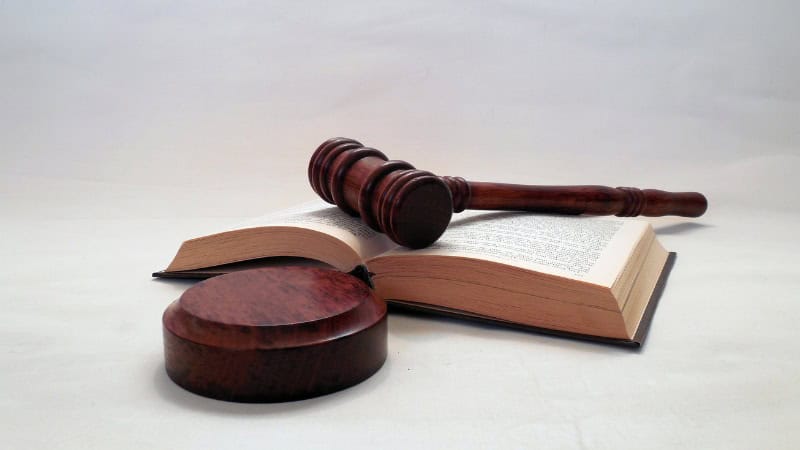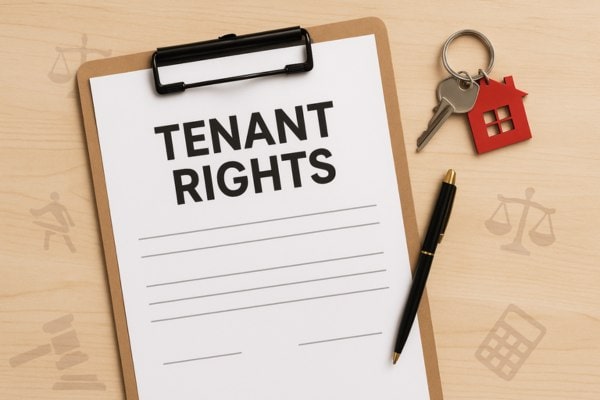Alabama Landlord Tenant Law: Key Rights & Rules Explained

You’re settling in for a quiet evening when knock-knock your landlord appears without warning. No text. No call. Just an unexpected visit to your rented property. Sound familiar? These awkward moments can blur the line between what feels wrong and what’s actually against the law.
In Alabama, the landlord-tenant relationship is governed by both the Alabama Uniform Residential Landlord and Tenant Act and federal laws like the Fair Housing Act. These laws are more than just fine print in lease agreements they’re designed to protect your tenant rights and ensure a fair, respectful tenancy.
So, what exactly is your landlord not allowed to do? In this guide, we’re breaking down the biggest legal red flags ones that Alabama tenants should never ignore.
Curious whether that last-minute inspection or surprise eviction threat was even legal? Let’s find out what Alabama landlords are not permitted to do.
Contents
- 1 Alabama Landlord Tenant Law
- 1.1 1. A Landlord Cannot Evict an Active Duty Service Member
- 1.2 2. A Landlord Must Not Engage in Discriminatory Actions
- 1.3 3. A Landlord Cannot Take Retaliatory Action Against Tenants
- 1.4 4. A Landlord Must Not Enter the Property Without Authorization or Violate Tenant Privacy
- 1.5 5. A Landlord Cannot Include Illegal Clauses in Lease Agreements
- 1.6 6. A Landlord Is Required to Follow Security Deposit Restrictions
- 1.7 7. A Landlord Cannot Evict Without Just Cause or Proper Legal Notice
- 1.8 8. A Landlord Must Maintain Safe and Habitable Living Conditions
- 1.9 9. A Landlord Must Not Engage in Unlawful Rent Increases or Practices
- 1.10 10. A Landlord Cannot Shut Off Utilities Illegally
- 1.11 11. A Landlord Must Respect Tenant Rights During Disputes
- 2 Conclusion
- 3 FAQs
- 3.1 What is considered retaliatory conduct by a landlord?
- 3.2 What can I do if my landlord does not return my security deposit?
- 3.3 Can my landlord raise my rent at any time in Alabama?
- 3.4 How much notice does a landlord have to give a tenant to move out in Alabama?
- 3.5 Do I still pay rent after an eviction notice?
Alabama Landlord Tenant Law
When it comes to renting in Alabama, both landlords and tenants are bound by a legal framework outlined in the Alabama Uniform Residential Landlord and Tenant Act (Ala. Code § 35-9A-101 and beyond).
This set of laws plays a key role in shaping the landlord tenant relationship, offering structure, expectations, and recourse for both parties. One of its most important functions is setting clear rules around landlord access to a rental property a topic that affects both privacy and trust.
According to Ala. Code § 35-9A-303, landlords have the right to enter a rental unit for specific reasons like making repairs, conducting inspections, or handling emergencies. But that doesn’t give them free rein to walk in whenever they please.
Unless there’s an urgent issue say, a burst pipe Alabama law requires landlords to give proper notice before entering a tenant’s home. This usually means at least two days’ notice, ensuring that tenants aren’t caught off guard or left feeling like their space is no longer their own.
The act also outlines key landlord responsibilities, such as maintaining habitable living conditions, responding to maintenance requests, and avoiding discriminatory practices.
Written and oral lease agreements are both legally valid in Alabama, but having everything in writing helps prevent miscommunication about lease terms, property conditions, or security deposit disputes.
It’s worth noting that Alabama is widely viewed as a landlord-friendly state. That means fewer restrictions on Alabama landlords, giving them more room to define lease provisions as they see fit. But that doesn’t mean tenants are left unprotected.
Laws are in place to guard against harassment, discrimination based on national origin, and unsafe living situations. For instance, under the Fair Housing Act, it’s illegal for a landlord to refuse to rent or retaliate based on protected characteristics, ensuring fair treatment for all renters.
If a landlord disregards these legal protections, Alabama tenants do have recourse. They can consult the Alabama Tenants Handbook, file a complaint, or even pursue legal action in court if the tenant’s act is breached. This balance of flexibility and accountability helps maintain a delicate balance in the rental market.
Let’s look at what landlords are explicitly not permitted to do under Alabama landlord tenant law.
1. A Landlord Cannot Evict an Active Duty Service Member
Imagine facing eviction while serving your country. For active duty military members in Alabama, that scenario isn’t just stressful it’s often unlawful.
Thanks to the Servicemembers Civil Relief Act (SCRA), Alabama landlords cannot evict an active service member or their dependents from a rented property without a court order for non payment of rent. This protection stands even in states like Alabama, where landlords generally have more flexibility under landlord tenant law.
The SCRA creates a firm legal barrier, especially when nonpayment of rent is tied to military duties.
If an eviction lawsuit is filed, the tenant or their spouse should inform the court about the service member’s active duty status. Judges can pause the eviction process for up to 90 days, or longer if military responsibilities affect the tenant’s ability to pay rent.
Service members are also allowed to terminate a lease agreement early without penalty if they’re deployed or reassigned. That means you won’t be on the hook for one month’s rent or face legal action just because your duty station has changed.
These federal legal protections work alongside Alabama landlord tenant law, reinforcing the importance of respecting the rights of those who serve.
2. A Landlord Must Not Engage in Discriminatory Actions
You finally find a rental unit that fits your needs, budget, and location, only to be told it’s “no longer available” after the landlord hears your accent or sees your last name. That’s not just disappointing. It’s a potential violation of federal law.
In Alabama, the Fair Housing Act is the primary legal safeguard against discrimination in the housing market. This federal law prohibits landlords, property managers, and housing providers from treating tenants unfairly based on race, color, national origin, religion, sex, disability, or familial status.
Whether you’re applying for a new apartment or renewing a lease, the law ensures you’re treated fairly from start to finish.
Discrimination can show up in many ways. A landlord might refuse to rent to a family with young children, offer different lease terms to someone based on their ethnicity, or post ads that subtly discourage certain groups. Even seemingly small remarks about a person’s background or religion can violate the law.
Unlike some states, Alabama does not provide additional legal protections based on sexual orientation or gender identity. This means the Fair Housing Act is the most important line of defense for renters seeking fair treatment across the state.
Equal housing isn’t just a principle it’s a legal requirement. Understanding your rights is the first step toward standing up to bias.
3. A Landlord Cannot Take Retaliatory Action Against Tenants
You report a leaking ceiling or a serious safety issue, and suddenly your rent goes up or you receive a notice to vacate. Coincidence? Under Alabama law, probably not.
Retaliatory actions occur when a landlord punishes a tenant for exercising a legal right. This could mean raising the rent, cutting off essential services, or starting the eviction process because the tenant reported a code violation, requested repairs, or joined a tenant union.
These kinds of responses aren’t just unethical they’re illegal under Ala. Code § 35-9A-501.
If a landlord takes any negative action within six months of the tenant filing a complaint or asserting a legal right, the law assumes retaliation. The burden of proof falls on the landlord, who must show their actions were not connected to the tenant’s protected activity.
Tenants, on the other hand, may be entitled to serious remedies, including reclaiming the rental property, ending the lease, and recovering up to three months’ rent or actual damages, plus legal fees.
Of course, these protections don’t apply if the tenant is in default on the lease agreement or is responsible for the issue in question. But when tenants follow the rules, speak up about property conditions, and assert their rights, the law ensures they’re not punished for doing so.
Understanding what counts as retaliation is vital in maintaining a fair and lawful landlord tenant relationship.
4. A Landlord Must Not Enter the Property Without Authorization or Violate Tenant Privacy
Privacy isn’t just a courtesy when you’re renting it’s a legal right. In Alabama, tenants are entitled to quiet enjoyment of their rental unit, which includes freedom from unexpected or repeated visits by the landlord.
There are situations where entry is allowed. If the property needs repairs, a routine inspection is scheduled, or the space is being shown to new tenants or buyers, your landlord can step in but only after giving two days’ notice, as required by Alabama law.
This notice helps preserve boundaries and maintains trust between both parties.
But when that boundary is crossed, let’s say a landlord lets themselves in without asking or shows up too frequently, it shifts from inconvenient to unlawful. Harassing visits or surprise walk-ins violate your tenant rights and could become grounds for legal action, especially if they interfere with your daily life or sense of security.
Emergencies are the only exception.
A burst pipe or electrical fire warrants immediate access, but anything outside of that needs your awareness beforehand. Alabama’s Uniform Residential Landlord and Tenant Act makes it clear: your home, even while rented, is not open territory.
Some landlords overlook these boundaries, assuming ownership gives them access at will. But in reality, it’s a delicate balance your landlord owns the building, but you control the space you live in.
5. A Landlord Cannot Include Illegal Clauses in Lease Agreements
Not all contracts are created equal even if they come with a signature. Just because a lease agreement looks official doesn’t mean every line in it follows the law.
In Alabama, it’s illegal for a landlord to include terms that strip away your basic rights as a tenant. Yet it still happens.
Some leases try to waive the landlord’s responsibility to maintain habitable living conditions or shift all maintenance responsibilities to the tenant, regardless of what the law says. Others sneak in clauses requiring tenants to pay the landlord’s legal fees, even if the landlord is the one in the wrong.
You might also see provisions that say the landlord isn’t liable for anything, even if their own negligence causes damage. These types of conditions violate Alabama landlord tenant law and are considered unenforceable.
Even if you’ve signed the lease, those specific clauses can’t legally be used against you.
This is why it’s so important to read every part of your lease before moving in. If something feels off or overly one-sided, don’t assume you’re stuck with it. Tenants always have the right to question lease terms and seek legal guidance if anything seems unfair or unfamiliar.
Leases should reflect the legal framework that protects both parties, not attempt to bypass it. And while many agreements are standard, small changes can hide big problems.
6. A Landlord Is Required to Follow Security Deposit Restrictions
You hand over a hefty security deposit, trusting that when your tenancy ends, that money will come back unless you’ve truly left a mess behind. But what happens when the landlord goes silent, or the refund never shows?
Under Alabama landlord tenant law, there are clear rules around security deposits that every tenant should know. First, a landlord can’t demand more than one month’s rent as a deposit. There are only a few exceptions, such as if you have a pet (not including service animals), request property alterations, or pose a greater liability risk to the rental property. Anything beyond that, without reason, is not permitted.
When your lease ends, the landlord has 60 days to return your deposit. If any amount is withheld, they must provide a detailed, itemized list explaining those deductions. Whether it’s for repairs, unpaid rent, or property damage, they can’t just keep the money without explanation.
If they miss the deadline or fail to give a proper accounting, Alabama law doesn’t take it lightly. The landlord becomes liable for double the original deposit, a penalty designed to prevent misuse of tenant funds.
There’s one more detail that often gets overlooked tenants must provide a forwarding address. Without one, landlords are only required to hold the deposit for 90 days. After that, it’s considered legally forfeited.
Security deposits aren’t a bonus fund for landlords. They’re held in trust and governed by strict legal protections.
7. A Landlord Cannot Evict Without Just Cause or Proper Legal Notice
You come home to find the locks changed or your belongings on the curb. No warning, no notice, just an empty apartment and a growing sense of panic. In Alabama, this kind of eviction isn’t just aggressive it’s illegal.
A landlord cannot remove a tenant without going through the legal eviction process. Under Alabama landlord-tenant law, self-help evictions like shutting off utilities, changing the locks, or tossing out your possessions are strictly prohibited. The law requires all evictions to be handled through the court system.
There are only a few valid reasons for eviction.
These include nonpayment of rent, serious lease violations, illegal activity on the premises, or simply reaching the end of a lease. But even in those cases, landlords must follow proper notice rules. For nonpayment or breach of lease terms, tenants must receive seven days’ written notice.
For ending a month-to-month agreement without cause, 30 days’ notice is required.
If the situation heads to court, tenants have the right to present defenses. For example, if the landlord failed to maintain habitable living conditions or ignored maintenance requests, these issues could weaken the eviction claim. And if the court determines the eviction was improper, the landlord could be on the hook for legal costs or damages.
Eviction is serious business, and Alabama law ensures it’s not used as a threat or shortcut. Whether you’re behind on rent or simply nearing the end of your lease, your landlord has to play by the rules.
8. A Landlord Must Maintain Safe and Habitable Living Conditions
You shouldn’t have to bundle up indoors because the heat doesn’t work or worry about leaking pipes turning your kitchen into a swamp. When you rent a property in Alabama, you’re not just paying for four walls you’re paying for a livable home.
Under Alabama Code § 35-9A-204, landlords are required to keep rental properties in safe, sanitary, and working condition. That includes following local building codes, maintaining structural integrity, and ensuring that all major systems plumbing, electrical, heating, and sanitary facilities function properly.
If your apartment comes with appliances or air conditioning, those too must be kept in working order by the landlord.
Basic services like running water, reasonable hot water, and consistent heat must be supplied unless the unit is legally exempt or utilities are directly controlled by the tenant. Common areas also fall under the landlord’s watch they must remain clean and free from hazards that could put your safety at risk.
If something breaks, you have the right to submit a maintenance request, and the landlord is expected to make timely repairs. When problems are ignored, Alabama tenants can report the issue to code enforcement or, in more severe cases, explore legal ways to end the lease agreement.
While Alabama doesn’t permit tenants to “repair and deduct” from the rent, legal remedies still exist but it’s important to seek advice before taking action.
These maintenance responsibilities are not optional. They’re legal obligations that ensure your rental unit is more than just a space it’s a safe, livable home.
9. A Landlord Must Not Engage in Unlawful Rent Increases or Practices
Sudden rent hikes can catch tenants off guard, especially when they come shortly after a complaint or maintenance request. In Alabama, while landlords have the right to raise rent, they must still follow fair and legal procedures.
There’s no statewide rent control, but that doesn’t give landlords a blank check. Increases must never be discriminatory or retaliatory. For instance, raising the rent because a tenant reported a health code violation or joined a renter advocacy group would violate legal protections under both state and federal law.
For fixed-term leases, the agreed-upon rent cannot be increased until the term ends unless the lease itself allows for mid-term adjustments. On the other hand, in month-to-month tenancies, landlords are encouraged to give at least 30 days’ notice before increasing rent, even though Alabama law doesn’t explicitly require it.
Late fees are permitted if clearly outlined in the lease agreement, and Alabama places no statutory cap on the amount. However, these fees must be reasonable and not designed to pressure or penalize tenants unfairly.
Unjustified or retaliatory rent increases erode trust and can create a hostile landlord-tenant relationship. Understanding the difference between a lawful adjustment and an unlawful tactic is key to protecting your rights as a renter.
10. A Landlord Cannot Shut Off Utilities Illegally
Imagine the lights go out, the water stops running, and the heat vanishes yet the bill is paid and there’s no service issue. If this happens under a landlord’s watch, it may be more than just a bad experience. It could be an illegal attempt to force a tenant to leave.
In Alabama, cutting off essential utilities like water, electricity, or heat as a pressure tactic is strictly prohibited. It doesn’t matter if the tenant is behind on rent or in conflict with the landlord utility shutoffs are considered a form of self-help eviction, which is illegal under Alabama landlord-tenant law.
These actions are often used to retaliate against tenants who’ve filed complaints, refused to pay unlawful fees, or asserted their tenant rights. But the law is clear: landlords cannot bypass the formal eviction process by making a rental unit unlivable.
Tenants experiencing a shutoff can go to court and request emergency intervention. If the judge determines the landlord acted unlawfully, the tenant may be awarded damages, including the cost of alternate housing, legal fees, or even compensation for emotional distress.
Access to basic utilities isn’t a privilege it’s a legal expectation tied to every lease agreement. And when it’s violated, Alabama tenants have every right to respond through legal channels.
11. A Landlord Must Respect Tenant Rights During Disputes
Tension may rise during a disagreement, but legal boundaries don’t disappear just because things get complicated. In fact, when conflict surfaces, that’s when tenant rights matter most.
Under Alabama landlord-tenant law, landlords are required to maintain lawful conduct throughout any dispute. That means no harassment, no sudden lockouts, and absolutely no removing a tenant’s belongings without a court order.
Even if the lease agreement is ending or has been violated, Alabama law does not permit landlords to take matters into their own hands.
Tenants have the right to remain in the rental property until an official eviction ruling is issued. They also have the right to contest the eviction in court, present a defense, and seek appropriate legal remedies if their rights have been violated. This includes cases involving improper notice, unaddressed maintenance requests, or retaliatory actions.
It’s also important for tenants to protect themselves during these moments.
Keeping a written record of every interaction, maintenance complaint, or communication with the landlord can make a huge difference if the situation escalates. Documented evidence often becomes a tenant’s strongest defense in proving what really happened.
Disputes are never ideal, but they don’t remove legal responsibilities. The law demands fairness even when things go wrong.
Conclusion
Renting a home in Alabama comes with more than just a monthly bill it comes with rights that protect your safety, privacy, and dignity as a tenant. From shielding active duty service members against unlawful evictions to requiring proper notice for entry and ensuring habitable living conditions, Alabama landlord-tenant law provides a framework designed to support both fairness and accountability.
Understanding these protections can make all the difference when disputes arise. Whether you’re facing a sudden rent increase, an illegal utility shutoff, or clauses buried in a lease agreement that seem suspicious, knowing your rights is the first step toward standing your ground.
If something feels off, don’t second-guess yourself. Reach out to a tenant advocacy group, speak with a legal professional, or consult resources like the Alabama Tenants Handbook. The law is there to protect you, but it works best when you know how to use it.
And for landlords, property managers, and law firms working with service members, confirming military status is more than a checkbox it’s a legal necessity. To verify active duty status quickly and accurately, visit SCRACVS and ensure full compliance with the Servicemembers Civil Relief Act.
FAQs
What is considered retaliatory conduct by a landlord?
Retaliatory conduct happens when Alabama landlords punish tenants for exercising their legal rights. Common examples include raising the rent, reducing services, or threatening eviction after a tenant files a maintenance request, reports code violations, or joins a tenant group. Under Ala. Code § 35-9A-501, this behavior is prohibited. If these actions happen within six months of the tenant’s complaint, they’re presumed retaliatory unless the landlord proves otherwise.
What can I do if my landlord does not return my security deposit?
If a landlord fails to return your security deposit within 60 days of lease termination or doesn’t provide an itemized list of deductions they could be held liable for double the deposit amount under Alabama landlord tenant law. Make sure you provide a forwarding address after vacating the rental unit. If the deposit goes unclaimed for 90 days, it may be forfeited. Legal action is an option if the landlord refuses to comply.
Can my landlord raise my rent at any time in Alabama?
For fixed-term leases, a landlord cannot increase rent until the lease ends unless lease terms explicitly allow it. In a month-to-month tenancy, while Alabama law doesn’t mandate a specific notice period, giving 30 days’ notice is considered best practice. Any rent increase must be lawful, non-retaliatory, and free of discrimination under the Fair Housing Act. Arbitrary increases after tenant complaints may be challenged as retaliatory.
How much notice does a landlord have to give a tenant to move out in Alabama?
The notice depends on the reason. For nonpayment of rent or lease violations, Alabama landlords must give seven days’ written notice. If they’re ending a month-to-month tenancy without cause, they should ideally provide 30 days’ notice to the tenant. The landlord tenant relationship must comply with Alabama law, and no tenant should be forced to vacate without proper notice.
Do I still pay rent after an eviction notice?
Yes, tenants are legally required to pay rent even after receiving an eviction notice until a court officially orders the termination of the lease agreement. Nonpayment may be used as grounds for eviction, but the eviction process must still go through the legal system. Withholding rent could lead to losing important legal protections, so seek advice before making any decisions during an active dispute.






